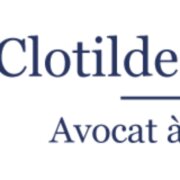Best Collaborative Law Lawyers in Albert
Share your needs with us, get contacted by law firms.
Free. Takes 2 min.
Free Guide to Hiring a Family Lawyer
List of the best lawyers in Albert, France
About Collaborative Law in Albert, France
Collaborative law is an innovative legal approach designed to resolve disputes without resorting to litigation. In Albert, France, this method emphasizes cooperation over confrontation, providing parties with the means to reach amicable agreements in a confidential and respectful environment. Collaborative law is often applied in family law contexts, such as divorce and child custody, but can also extend to business, property, and other civil matters. It employs a team-based approach, ensuring parties have professional support not only from their lawyers but also from relevant experts, such as financial advisors and mental health professionals.
Why You May Need a Lawyer in Collaborative Law
Common situations where individuals may require legal help through collaborative law include complex divorce proceedings, custody and visitation disagreements, property disputes, business partnership dissolutions, or any scenario where preserving relationships and privacy is desired. Collaborative lawyers in Albert act as facilitators, helping parties negotiate settlements that meet everyone's needs, minimizing conflict, reducing costs, and protecting personal and professional reputations.
Local Laws Overview
In Albert, France, collaborative law is regulated under French civil law provisions, which provide a structured framework for out-of-court settlements. The process is voluntary; all parties must agree to engage in collaborative law and remain open to negotiation. Key regulations mandate full transparency of relevant information between parties, and all discussions are without prejudice, which means details cannot be used if the matter proceeds to court. This model aligns with the general principles of French legal practice, which encourage amicable resolution of disputes whenever possible.
Frequently Asked Questions
What is the primary benefit of choosing collaborative law over traditional litigation?
The primary benefit is the ability to resolve disputes amicably, avoiding the adversarial nature of court proceedings. This can lead to more sustainable and mutually satisfactory agreements.
How does the collaborative law process begin?
The process begins when the parties and their lawyers sign a "participation agreement" outlining their commitment to resolve the dispute amicably and refrain from court proceedings during negotiations.
What happens if we can't reach an agreement?
If an agreement isn't reached, parties are free to pursue litigation, though original collaborative lawyers are usually disqualified from representing clients in court to ensure dedication to the collaborative process.
Can we hire other professionals to assist with our proceedings?
Yes, the collaborative process often involves other experts, such as financial analysts or child specialists, to provide additional guidance and facilitate informed decision-making.
How confidential is the collaborative law process?
The process is highly confidential, with discussions and documents maintained private and separate from potential court cases.
Is collaborative law faster than going to court?
Generally, yes. Collaborative law can be quicker as it eliminates lengthy court schedules, focusing instead on timely resolution and negotiation sessions.
What are the costs involved with collaborative law?
Costs can vary depending on the case's complexity but are often less than traditional litigation due to the streamlined, efficient process focused on settlement rather than contest.
Do collaborative lawyers need special training?
Yes, lawyers engaging in collaborative law require specific training to enable them to facilitate negotiations effectively without resorting to adversarial practices.
What types of cases are most suitable for collaborative law?
Collaborative law is suitable for any non-criminal dispute, especially those where parties have a continuing relationship, such as family law cases or business partnerships.
Can collaborative law be used to modify existing agreements?
Yes, it can be effectively used to renegotiate terms of existing agreements, such as custody or support arrangements, as circumstances change.
Additional Resources
For those seeking further information or assistance, consider contacting local Bar Associations, legal aid services, and community mediation centers in Albert, France. These organizations often provide support and may have listings of qualified collaborative law professionals in the area.
Next Steps
If you decide that collaborative law is the right path for your situation, it’s important to start by seeking a qualified collaborative lawyer. Schedule consultations to find an attorney who aligns with your goals and values. Prioritize transparency and communication to ensure a smooth and effective process. Lastly, gather relevant documentation and information to prepare for your collaborative sessions, ensuring all parties are equipped to engage in constructive discussions.
Lawzana helps you find the best lawyers and law firms in Albert through a curated and pre-screened list of qualified legal professionals. Our platform offers rankings and detailed profiles of attorneys and law firms, allowing you to compare based on practice areas, including Collaborative Law, experience, and client feedback.
Each profile includes a description of the firm's areas of practice, client reviews, team members and partners, year of establishment, spoken languages, office locations, contact information, social media presence, and any published articles or resources. Most firms on our platform speak English and are experienced in both local and international legal matters.
Get a quote from top-rated law firms in Albert, France — quickly, securely, and without unnecessary hassle.
Disclaimer:
The information provided on this page is for general informational purposes only and does not constitute legal advice. While we strive to ensure the accuracy and relevance of the content, legal information may change over time, and interpretations of the law can vary. You should always consult with a qualified legal professional for advice specific to your situation.
We disclaim all liability for actions taken or not taken based on the content of this page. If you believe any information is incorrect or outdated, please contact us, and we will review and update it where appropriate.








